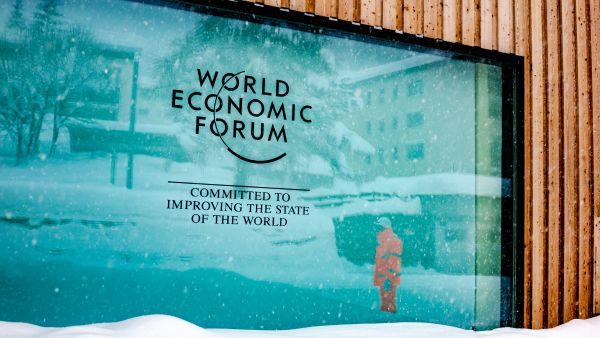Due to the COVID19 pandemic, this year's World Economic Forum in Davos has been organized virtually, bringing hundreds of delegates from across 60 countries to discuss the world's most significant issues.
It is important for boards to focus on driving long-term value and fostering a culture of continuous change. During the #DavosAgenda, let's seek ways on how to plan for business recovery. #ReframeYourFuture @EYnews @WEF https://t.co/SngHSnidsq
— David Oliveira (@Davidelisiario) January 21, 2021
Not only does this summit mark the first Davos meeting since the coronavirus outbreak started almost a year ago, but it is also the first summit since the end of former US President Donald Trump's term.
Under the slogan "Crucial year to rebuild trust," this year's 5-day summit has been focusing on the challenges that pose the most dangerous threats to global stability and economy during the pandemic era, including the required efforts to achieve a quick and fair economic reset, an end to poverty, disease control, shrinking inequality, fixing the global trade system, in addition to other development-orientated topics.
This year's summit has addressed several topics, including the environmental challenge of climate change, sustainability, emergency control, and the different suggestions that can be put forward to end the various forms of economic inequalities.
In his speech during the WEF, UN Secretary-General António Guterres stressed the need for collaboration between public and private sectors in the coming years, in order for the global economy to ensure greater recovery, adding: "We need you more than ever to help us change course, end fragility, avert climate catastrophe and build the equitable and sustainable future we want and need."
Student protesters who urged world leaders at the 2020 WEF to ‘Stop (f)lying to us’ must be pleased this year as the conference is forced online. But the #DavosAgenda still aims to shape the principles, policies and partnerships needed in this new context https://t.co/PxR8j6fvBN
— Reuters (@Reuters) January 28, 2021
Meanwhile, South Korean President Moon Jae-in brought the conference a more positive sentiment, talking about his country's plans to create a profit-sharing system that can narrow the gap between, despite his warning against polarization and deepening inequality amid the pandemic.
However, remarks between the Chinese and Russian presidents were more critical of global policies handling different issues. The Chinese President Xi Jinping warned the world of a new "cold war," calling for "a return to multilateralism and an increase of international cooperation to face the current pandemic.
The Russian president addressed what he called "US dominance over the tech world," saying that "it threatens democracies worldwide."
“Digital giants have been playing an increasingly significant role in wider society,” Putin said via videoconference. “In certain areas they are competing with states … Here is the question, how well does this monopolism correlate with the public interest? Where is the distinction between successful global businesses, sought-after services and big data consolidation on the one hand, and the efforts to rule society[…] by substituting legitimate democratic institutions, by restricting the natural right for people to decide how to live and what view to express freely on the other hand?” - Russian President Vladimir Putin
The Indian Prime Minister's remarks have also addressed the latest technological advancements, including data protection and cyber-physical systems. Moreover, Narendra Modi's speech highlighted his country's investments in AI technologies and additive manufacturing.
Do you think the World Economic Forum will be able to present practical plans that can eventually tackle the many challenges faced in today's world?







